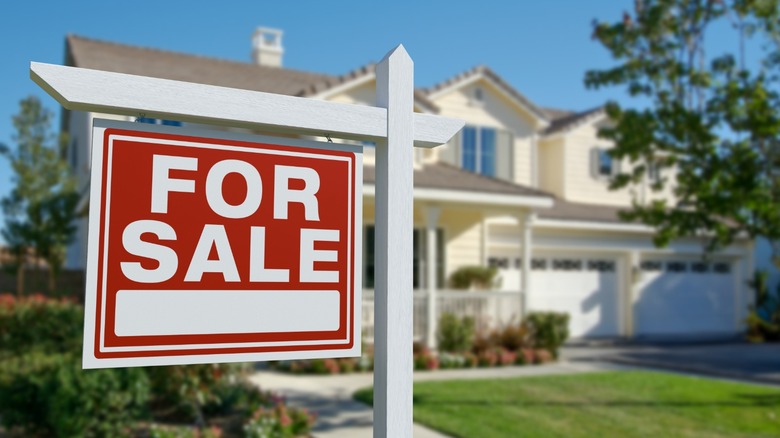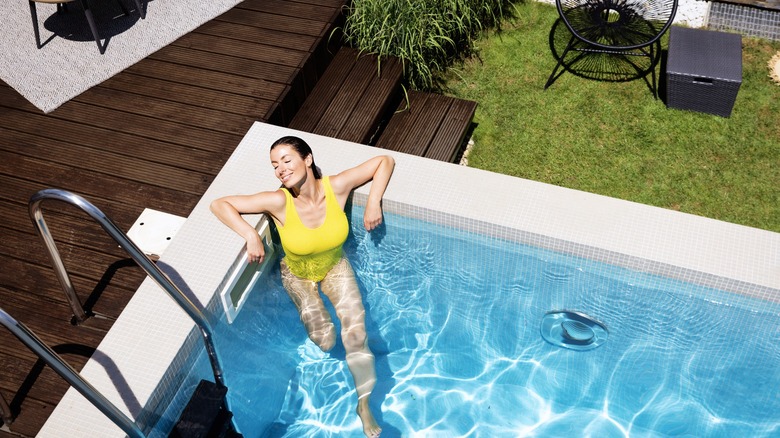This Home Upgrade Seems Good On Paper But Could Make Your Home Harder To Sell
When you're considering home upgrades to increase the value of your property ahead of a listing, the best strategy is to invest in a risk-free improvement. Usually, that's something everyone appreciates, like a flooring upgrade, new windows, doors, and insulation, or a fresh coat of paint. These are things that every prospective homebuyer would love to see in a house they're interested in. However, you shouldn't waste money on an "upgrade" that might not be useful to the buyer, and one of the more popular examples of this is a swimming pool.
While they may seem like a great idea (especially in a warmer region), pools are expensive to build and maintain. Installation quotes range widely depending on where you're building and what kind of pool you want, but most people pay around $66,000, according to HomeAdvisor. After the installation is done, you (and any potential buyer) still have to worry about expensive maintenance, which costs 1,200 to 1,800 annually, per Redfin. This figure includes the costs of cleaning, chemicals, and extra electricity usage. As for insurance, the Insurance Information Institute (III), recommends lifting liability limits from the $100,000 minimum to between $300,000 and $500,000, because pools are an "attractive nuisance" that can increase your liability risk. While it will vary a lot, a new pool could mean an additional $50 to $75 in insurance premiums.
You'd think that doing all of this would mean that the value of your house would go up. But the pool addition could also backfire if the buyers in the area don't want to pay a premium while enduring the inconvenience, expenses, and safety hazards that come with a gaping body of water on the property. Ultimately, the upgrade could make it harder for you to sell the home.
When does a pool upgrade make sense?
If you're interested in having a pool for your personal enjoyment, and you don't care about using it as a way to increase home value, then adding one is fine. This could also work favorably for ROI — many experts recommend you add a pool as a long-term (over seven years) investment rather than a quick way to raise home value. There are many other affordable ways to increase your home's value. Also, most buyers can tell if you just tried to shoehorn a pool into a home that doesn't have the space or layout for it simply to increase the home value.
Next, you must consider the climate and demand for pools in your area. For instance, in Anchorage, Alaska, only 2% of total listings have pools, according to data collected by Porch in 2021. That's not surprising for a cold region. On the other hand, the same study revealed that eight out of 10 cities with the highest number of homes for sale with pools were in Florida (the other two were in California). If you find yourself in a warmer climate, it's almost guaranteed that getting a pool won't, at least, reduce the value of your property. This is backed by Porch's findings, which also proved that in 96% of the cities it analyzed, homes with pools cost more than those without.

